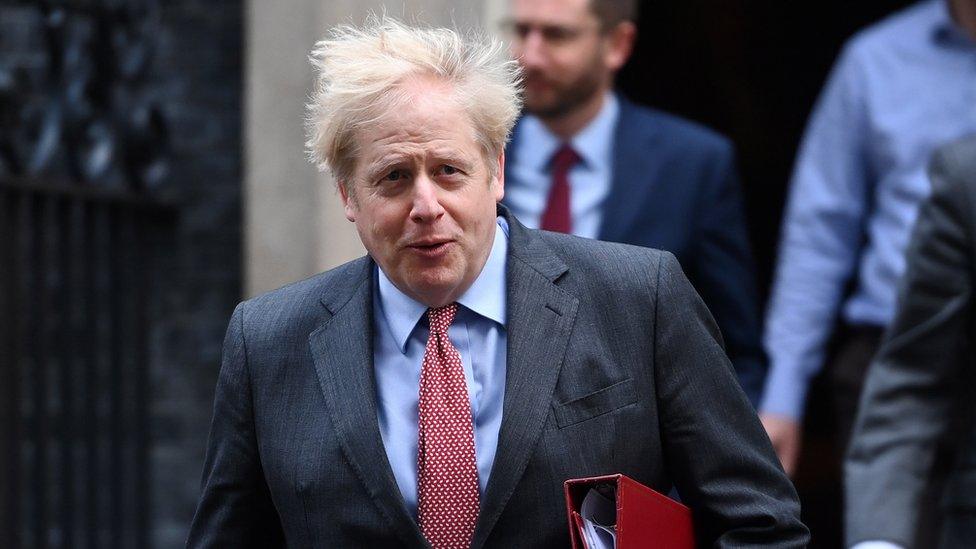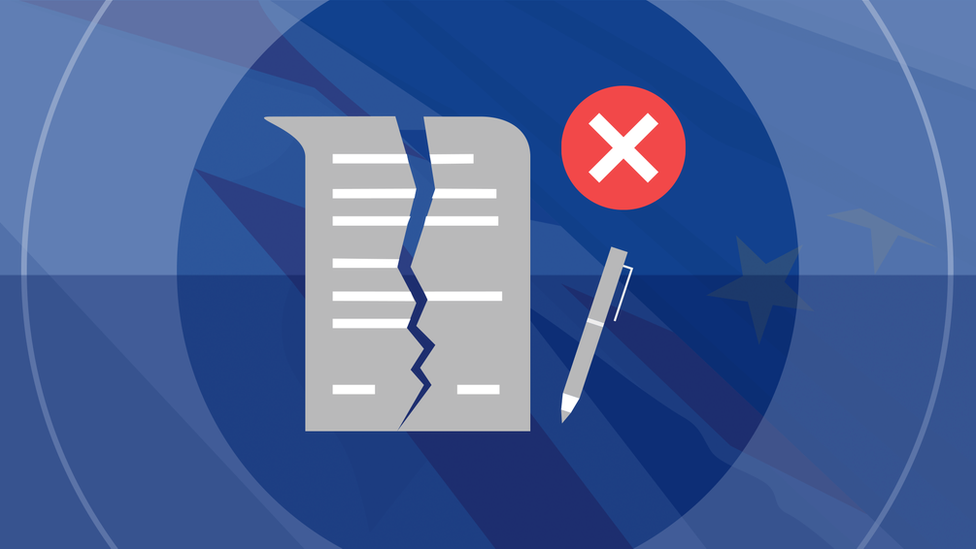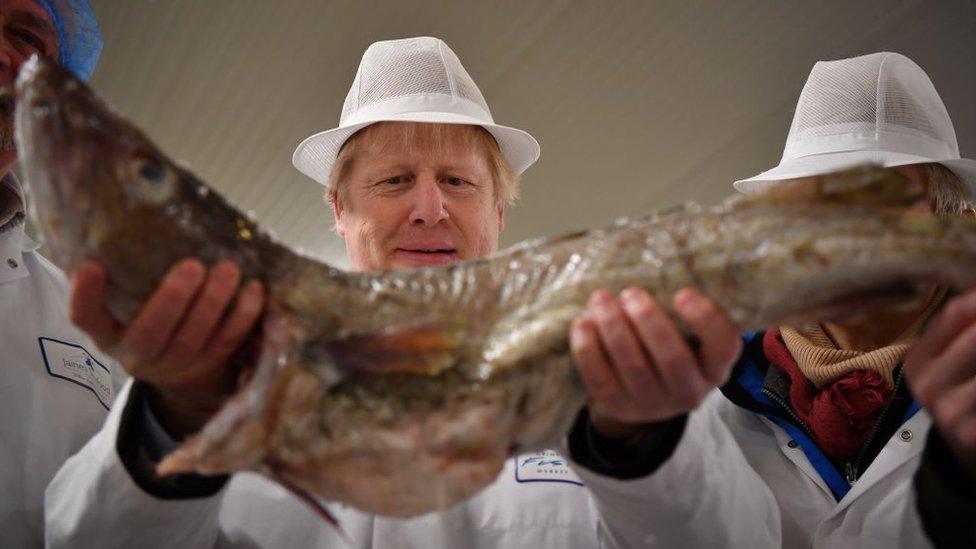Brexit: Johnson heads to Brussels on Wednesday for last ditch trade talks
- Published
- comments

Boris Johnson is heading to Brussels on Wednesday for talks with European Commission President Ursula von der Leyen on a post-Brexit trade deal.
The pair are under pressure to get an agreement before the UK stops following EU trading rules on 31 December.
The dinner meeting comes after intensive talks between EU and UK officials ended in deadlock.
Major disagreements remain on fishing rights, business competition rules and how a deal will be policed.
Mr Johnson will work through a list of the major sticking points with Mrs von der Leyen, who is representing the leaders of the 27 EU nations.
He will take part in Prime Minister's Questions before travelling to the Belgian capital. EU leaders are due to meet for a summit of their own on Thursday.
A UK government source said "political impetus" would be required if the talks are to make any more progress.
"If we can make progress at a political level, it may allow Lord Frost and his team to resume negotiations over the coming days," the source added.
EU sources told the BBC that EU chief negotiator Michel Barnier briefed the bloc's Europe ministers that talks were tilting towards no deal being reached before the deadline.


The purpose of Wednesday's dinner is not to call a halt to talks. But nor is the purpose to proclaim that a deal's been done.
The reason for the meeting is to see if both sides are willing in principle to tolerate the notion of budging, after the negotiations, and frankly negotiators, have been exhausted.
If the prime minister and Mrs von der Leyen can look each other in the eye and agree that there are still compromises to be had, then a deal is still possible.
If they are willing to make that kind of pact - to say privately to each other, I'm willing to budge if you are too - then that would in theory allow technical talks to get going again.

Earlier, Mr Johnson said he hoped the "power of sweet reason" will allow both sides to clinch an agreement before the end of the year.
If an agreement is not reached and ratified by this date, the UK and EU could introduce import charges on each other's goods.

Brexit - The basics
Brexit happened but rules didn't change at once: The UK left the European Union on 31 January 2020, but leaders needed time to negotiate a deal for life afterwards - they got 11 months.
Talks are happening: The UK and the EU have until 31 December 2020 to agree a trade deal as well as other things, such as fishing rights.
If there is no deal: Border checks and taxes will be introduced for goods travelling between the UK and the EU. But deal or no deal, we will still see changes.

News of Wednesday's meeting comes as the UK announced it had reached agreement with the EU on post-Brexit border checks and trading rules for Northern Ireland.
It means UK has now dropped plans to override sections of its EU exit agreement it signed last year, which would have potentially broken international law.
The government had previously said it needed the powers as a "safety net" to prevent a "border down the Irish Sea" in case talks with the EU over the border broke down.
The agreement, the details of which have yet to be made public, follows talks in Brussels between Cabinet Office Minister Michael Gove and EU commissioner Maroš Šefčovič, which have taken place alongside the negotiations over a new trade agreement.
Speaking after the announcement, Mr Gove said he was "delighted" and thanked the EU team for their "constructive and pragmatic approach".
Mr Šefčovič said the agreement had removed "one big obstacle" from the trade talks, and would create "positive momentum" for the negotiators.
But he warned the two negotiating teams were "still very far apart, and we are not hiding this from anyone".
What are they arguing about?
The two sides are at loggerheads over the so-called "level playing field" - a set of shared rules and standards to ensure businesses in one country do not have an unfair advantage over their competitors in others.
Brussels wants the UK to follow EU rules closely in areas such as workers' rights and environmental regulations, but the UK says the goal of Brexit is to break free from following common rules and reassert national sovereignty.
And the two sides disagree on how any future trading disputes should be resolved.
On fishing, the two sides are continuing to haggle over how much access European fishing boats should have to British waters, and how much they would be allowed to catch from next year.


- Published13 December 2020

- Published18 December 2020
